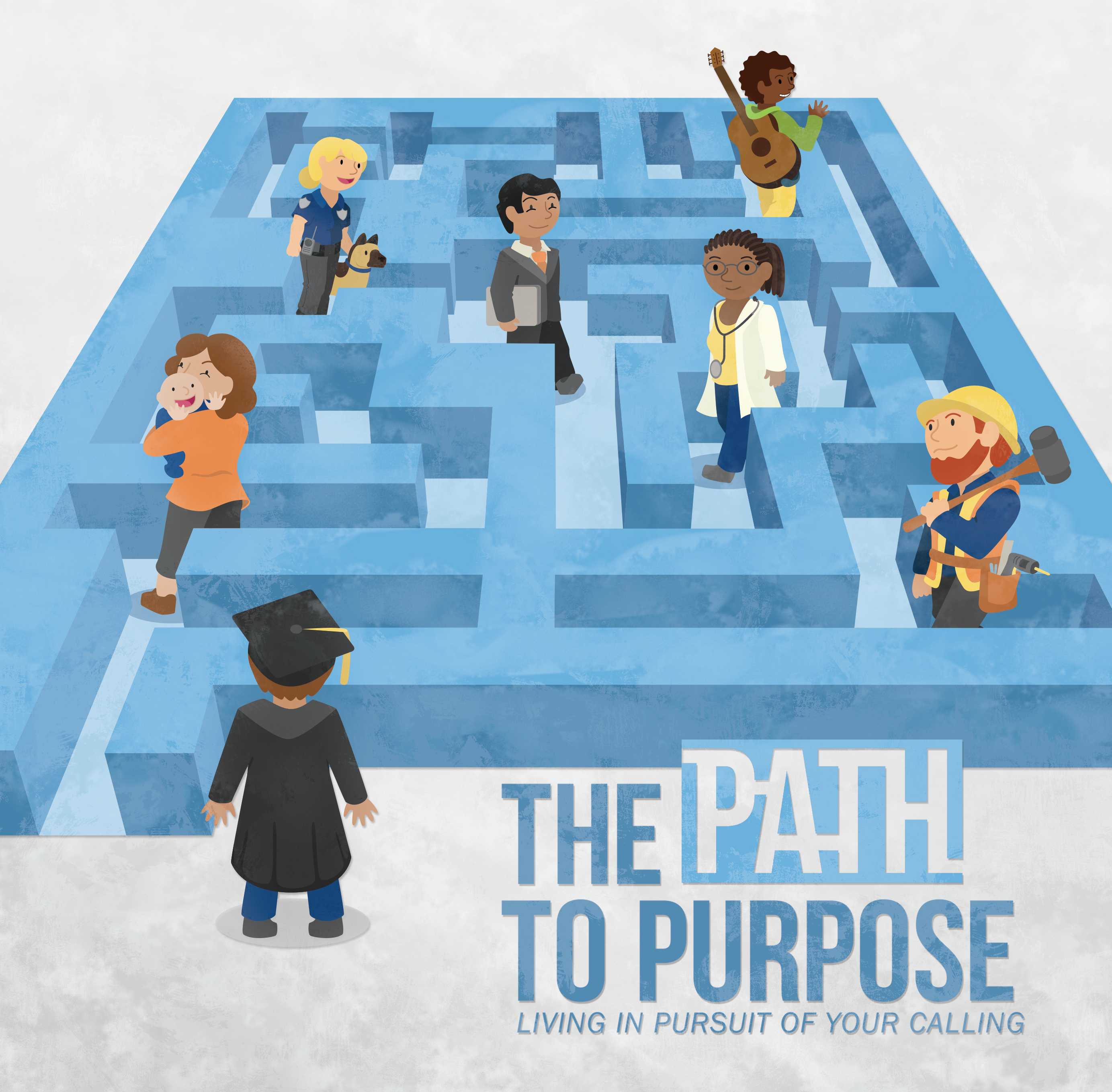The Path to Purpose
By Julie Gumm '95
September 28, 2018

Andrea (Comfort) Martinez ’04 always had a heart for people from other cultures. She assumed that fitting her passion into a career meant becoming a missionary.
But as a junior, one JBU chapel changed everything. The speakers were a group of human rights lawyers from International Justice Mission (IJM), a global organization that protects the poor from violence throughout the developing world.
“I knew there was poverty in the world, but I didn’t know there was so much injustice in the world,” Martinez said.
Martinez returned to her dorm in tears and felt like she could hear the voices and screams of enslaved young girls ringing in her head. It was then that she found her true vocational calling as a human rights lawyer and began to set her course for law school.
Like Martinez, it is not uncommon for students to change their career path during college. According to Inside Higher Education, almost one-third of college students change their major at least once in the pursuit of a successful career that suits their skills and interest. Often that change happens as students begin to discover their calling, a process that John Brown University is now engaging in with students from the very start of their college experience.
In 2016, JBU was awarded a $50,000 Program Development Grant by the Network for Vocation in Undergraduate Education (NetVUE).
The grant funded a three-tier initiative to enhance the research, development and implementation of vocational-exploration programs. A committee of JBU community members collaborated to establish a common language and framework for student vocational exploration, as well as training materials and resources for faculty and staff advisers, student club leaders, resident assistants, student support services, retention program staff and student ministry leaders.
“Students sometimes think of a calling as having a ‘burning bush moment’ where God directly points them in a career direction,” said Steve Beers, vice president of student development. “But we want them to understand that while that does sometimes happen, usually finding your calling is a matter of determining how they can use their God-given giftedness, interests and passions to meet a human need.”
Now that conversation and reflection begins almost the moment students arrive on campus.
Beginning with the freshman Gateway Seminar course, JBU students begin to explore answers to three questions:
- Who am I?
What are my talents; what life events have shaped who I am today?
- Who am I doing life with?
Who celebrates my successes; who supports my in trouble; who shares Godly wisdom?
- What am I to do with my life?
What fills me with delight; what makes me weep with compassion; where do I see Jesus walking around in the world?
Those themes continue as they meet with their advisers, live in campus housing and participate in student ministries.
In March 2018, JBU began what will be an annual focused month of campus-wide programming, called Vocaré, designed to help the community understand their vocation and calling. It included men’s and women’s retreats, seminars for various groups and vocation-focused chapels.
For Andrea Martinez, her 2003 JBU chapel experience brought clarity to her desire to help people from other countries.
“I didn’t know anything about being a lawyer,” Martinez admitted. However, what she didn’t know she learned. She began studying for the law school entrance exam that summer and spent her senior year applying to law schools.
After getting her law degree from American University in 2007, Martinez spent nine months in Guatemala working with IJM, assisting Guatemalan attorneys as they prosecuted child sex offenders. When she returned to the United States, she clerked for a federal judge in Washington, D.C., while praying about how she could use her passion in the U.S. where she was licensed to practice law.
During the yearlong clerkship, Martinez married Jorge Martinez ’03, a JBU Walton International Scholarship Program alumnus from Honduras. While helping process her new husband’s green card application, Martinez realized how difficult the immigration process was. Other people then started asking her for help with their applications.
Martinez recognized that she needed to broaden what she thought of as “human rights.” Very quickly she realized that with her experiences and her fluency in Spanish, practicing immigration law was a natural fit.
“The practice of law is a holy calling,” Martinez explained and said her calling is continually reaffirmed, especially when defending clients from deportation.
“Most of the time they are seeking asylum. I have a lot of clients who are fleeing domestic violence, especially in Latin America,” Martinez said. “We are helping protect people from potentially being killed if they return to their home country. Every time we win it feels like I saved a life.”
Martinez confirmed that there is a lot of burnout in the field and attributes it
to the high stakes and the ever-changing immigration laws. Because immigration courts are run by the executive branch of the government, rules change all the time as leadership changes. Those that work in the field often refer to immigration law as “death penalty consequences with traffic court rules.”
After working with another firm for seven years, Martinez opened her own practice in Kansas City, Missouri, in 2016, where on most mornings her team gathers to pray for their clients and the country’s leaders.
“My faith is stronger because I’ve been forced to depend on it,” she said. “Even when we lose, we have to depend on God to protect our clients. The weight seems heavy, but Jesus loves them more than I do.”
Martinez feels like the key to finding your calling is to find something you’re passionate about and where you can serve other people.
“I was a really good arguer,” she said. “Know your gifts and do something within your gift mix.”

